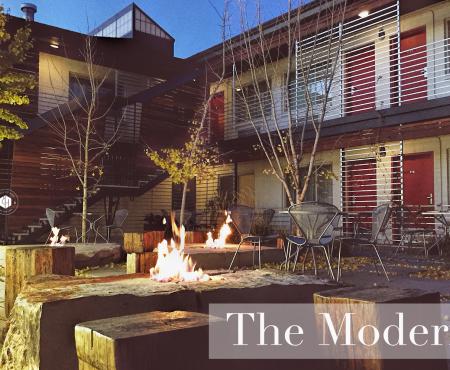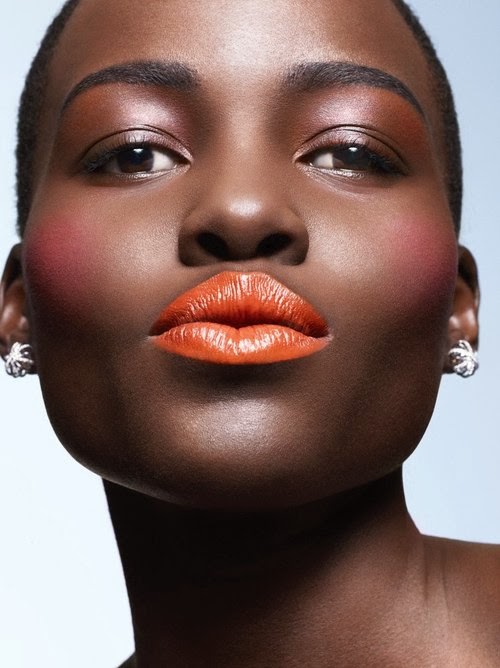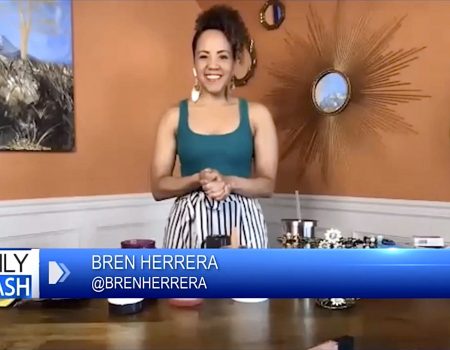I wasn’t going to ride the borderline dried out wave of Lupita Nyong’o‘s splash. She’s everywhere. And so is her wardrobe. And her speeches. I’ve not read anything online but followed the images on nightly news recaps as soon as she won at the Golden Globes. She’s stunning, good God. Perfect cheekbone structure, petite frame, killer sculpted arms, and an infectious smile. But that was suffisant for me. That would be the reason for why it’s two days after her well-earned Oscar win on Sunday night and I’m only now penning my thoughts.
I didn’t want to be another blogger, brown girl, or social culturist dishing out my opinion of what her celebrity means to little girls. But the more I looked at her hair cut and swooned over her perfectly chosen Prada gown, the more I couldn’t ignore the importance of her aesthetic and articulate appearance in the internationally-hawked platform she is gracefully milking. Rightly so.
See because Lupita really is every girl’s woman. I may break apart from my other brown and black sister’s opinion that she speaks and represents every little bright-eyed Black girl growing up with a talented spirit and big dream. And she is. I think that’s duly noted. But she’s more than that. She’s every little girl’s role model, because no matter our race or ethnicity, we all have a dream. And God has truly gifted us each with a talent.
There’ve been other woman, not just black or Latina, whose stories and journeys have resonated with me. But Lupita, particularly her role as the young servant, Patsey, in 12 Years a Slave, touched a very intimate, personal note I didn’t know could be struck.
But the strike didn’t come from the intensely talked about skin complexity or colorism angle from where many are positioned, as it were — being dark skinned. It’s a valid point, however. My connection is two fold: the lack of color in being black and the emotional and physical enslavement.
It’s quite obvious I’m not dark skinned, but what many don’t ever talk about or even suspect a sentiment to contend, is that the same “black” issues Lupita has admitted to having, light-skinned black girls and woman have — on the flip side.
I’m an Afro-Latina. And she could be considered one, too, having been born and partly raised in Mexico (hence her name). I won’t define it for you. Look it up. But for me, growing up that meant chastizmemt in a different way. I wasn’t black enough. My hair wasn’t course enough — it was too “good.” I spoke a different (additional) language. Or I spoke too fast. I was judged by my complexion. I was that light skinned chick that wanted to be black. High school friends blurted hateful things about me because I permed my hair to kill my natural curl. Or talked behind my back because the black guys liked me equally. But my nose was too familiar.
In college I experienced that color identification from a more known perspective. At that point, the classification of black people was general. Complexion didn’t matter. Black was black. One classmate didn’t let me — the only non-white student — skim her notes from a missed class, and here I thought we were friendly, but her body language called her out.
I slowly started resigning to the idea of being ostracized for being black. But all of that took a reverse turn just a few years ago in Atlanta, the mecca of the south, when I was kicked out of “black” business event because I wasn’t black enough. I was literally escorted out and my blackness was questioned, as it was an event “for black people, by black people.” Sadly for me, I entertained the foolishness and explained how my grandfather is Jamaican and my grandmother a black Cuban with a big booty and kinky hair.
As I got older, I fully understood the misplaced personification of a being a black girl with profound talent and a wild dream. I worked in big law firms with older white male lawyers who didn’t think it possible a trilingual brown girl went to UVA. Or that I was classically trained on the cello. Or that I was in love with English literature (yes, as in Tennyson and Austen). Or that I had already been to five countries (non-Caribbean) on vacation by 21. It was unfathomable for a black girl. There was no way I could have dreams of being a lawyer. That “nigger woman” dressed in a business suit starting her day drafting a deposition was too unlikely to meander successfully at a mostly white lawyer-laced cocktail party.
But my dreams got bigger and bolder as I realized how my blackness, my multilingualism, and education was mystified by my counter peers. And as I started realizing I was just as smart and able as my non-black or non-Hispanic friends and colleagues. And as I appreciated the stories my parents continued to tell, I knew I had every chance and right to clutch my dreams.
I come from once very poor parents. I was born in a room in Havana that my parents shared with my grandparents. Four adults and three kids. Not a NY studio-sized apartment. A room. Until my parents left Cuba fleeing communism, we lived in that room, staring at pale yellow walls caving in with reminders of mental oppression. Poor and destitute. They were controlled by the state and ate what the government told them what they could eat. My baby status afforded us a half pound of beef and one gallon of milk per month, which stopped when I turned 1. My dad hustled icky soap on the streets to get additional food. My mom dropped out of school to take care of my dad and then 1 year old brother. But my parents had wild dreams of living in America and offering us, eventually 5 children, a better life.
…no matter where you’re from your dreams are valid. –Lupita Nyong’o
I look at my life now and am growingly amazed and replete with gratitude for the woman I am. From a short, über-polite and proper little girl in Miami, head full of wavy curls, to a nerdy, lanky, and afro-rocking preteen, and popular but not-so-hip teenager in high school, to an assertive and unapologetic entrepreneur, I’ve always been very clear on having a dream. On being talented and using that talent to achieve my dream.
Lupita’s success and presence is my success and presence. I’ve finally started to see the glory behind that dream. There’s still lots to peel back, but I’ve used every bit of my imperfectly perfect background, thrice culturally, racially, and economically, to my benefit and drive. There’s nothing about my story that dims my right to dream or my aptitude to position myself to achieve those dreams; because they’re still growing bigger and bolder. And my blackness or lack thereof has nothing to do with it.
Every girl has a story. Every girl comes from a special place. Every girl’s dreams are valid.
And I’m a woman living her dream. But, I’m wearing a navy blue dress.

Eat well, love unapologetically, pray with true intention, and take care of yourself.





















66 thoughts on “Lupita Nyong’o’: Black Girl in a Blue Dress”
I cannot even begin to tell you how much I love this piece. And how much I identify with your experience and your words. Yes, yes, and YES! Throwing in an AMEN and HALLELUJAH because my spirit demanded it.<br /><br />Thank you for sharing your story!<br /><br />oxoxox
This is an amazing post – about you, about dreams, about color.Thank you for sharing.
Great post, I am really not much into fashion, but I understand that every person wishes to be accepted and found attractive. It's human nature. And she is making a lot of people rethink their concept of beauty, although let's be honest, she's gorgeous, isn't she?<br /><br />And you are too. Gorgeous, generous and talented.
I have no words…. You poured your heart and soul writing this. Thanks for sharing your life story and your point of view with us.
Great post Bren. You have to be content in how you identify and be satisfied with that, no matter what people think. <br /><br />Ultimately, your skin color is not invisible and a lot of people will be inclined to point it out (not always positively, as your story shows), which means all the more…you have to love and identify yourself through the context of being black.<br /><br />That's
Sili: So glad you read and can relate. Our story is just as important but seldom expanded on. <br /><br />Danica: Thanks for appreciating my position 🙂 I so heart you!<br /><br />Clara: You already know how much I adore you. Thanks for sharing the sentiment but really for seeing me as I am. And of course Lupita gave me a great opportunity to talk about this. <br /><br />Chantilly: You make a
Thank you for sharing your story. Best post so far!! I applaud you my friend!!
Lupita is Stunning. I loved this story. Thanks for sharing! 🙂
544835 508018Thank you for your great post! It has long been really valuable. I hope that you will proceed sharing your wisdom with us. 300069
tadalafil daily use: http://tadalafilonline20.com/ tadalafil 40 mg daily
buy tadalafil tadalafil online
tadalafil max dose
medications without a doctor’s prescription: https://genericwdp.com/ india pharmacy mail order
prescription drugs online without doctor: https://genericwdp.com/ generic drugs without doctor’s prescription
india pharmacy mail order: https://genericwdp.com/ india pharmacy
how much is viagra buy viagra online canada
viagra over the counter walmart
viagra amazon how much is viagra
order viagra online
100mg viagra when will viagra be generic
over the counter viagra
viagra 100mg price viagra online usa
viagra amazon
over the counter viagra viagra discount
buy generic 100mg viagra online
paxil for anxiety paxil price
chloroquine buy aralen
best place to buy generic viagra online https://viagrapills100.com/ best over the counter viagra
viagra amazon https://viagrapills100.com/ viagra over the counter walmart
viagra over the counter walmart https://viagrapills100.com/ where can i buy viagra over the counter
759344 44364I was trying to discover this. Actually refreshing take on the information. Thanks a good deal. 953000
viagra price buy viagra online canada
viagra amazon
cheap ed pills from canada cheap ed pills in mexico
cheap ed pills usa
order ed pills ed pills without a doctor prescription
cheap ed pills from canada
buy ed pills cheap ed pills from canada
ed doctors
buy ed pills cheap ed pills in mexico
erectile dysfunction pills
cheap ed pills in mexico ed pills online
buy ed pills from canada
http://hydroxychloroquinest.com/# plaquenil canada
https://hydroxychloroquinest.com/# plaquenil medicine
http://gabapentinst.com/# neurontin 300 mg tablet
http://zithromaxproff.com/# zithromax for sale online
zithromax online no prescription
https://zithromaxproff.com/# average cost of generic zithromax
generic zithromax 500mg
tinidazole for sale: noroxin online
chloramphenicol tablets
самоходные штабелеры
http://www.shtabeler-elektricheskiy-samokhodnyy.ru/
самоходный ножничный подъемник
https://nozhnichnyye-podyemniki-dlya-sklada.ru
электророхли
https://samokhodnyye-elektricheskiye-telezhki.ru
телескопическая вышка
https://podyemniki-machtovyye-teleskopicheskiye.ru
телескопическая вышка
https://podyemniki-machtovyye-teleskopicheskiye.ru
подъемник мачтовый
https://podyemniki-machtovyye-teleskopicheskiye.ru
подъемный стол гидравлический
https://gidravlicheskiye-podyemnyye-stoly.ru/
профиль с подписчиками prodat-akkaunt-online.ru/
Online Account Store Find Accounts for Sale
Account Exchange Service Buy accounts
Accounts marketplace Sell Pre-made Account
Account Buying Platform Website for Buying Accounts
accounts marketplace buy accounts
account trading platform accounts for sale
account market profitable account sales
account exchange account selling service
online account store account trading platform
account selling service account trading platform
account marketplace account marketplace
sell account social-accounts.org
profitable account sales ready-made accounts for sale
account marketplace account trading service
sell pre-made account buy pre-made account
account trading platform account trading
buy and sell accounts account trading platform
биржа аккаунтов https://rynok-akkauntov.top/
cheap facebook accounts buy pre-made account buy and sell accounts
The practical applications you’ve outlined are already making a difference in my work.
捕风追影在线官方認證平台,專為海外華人設計,24小時不間斷提供高清視頻和直播服務。